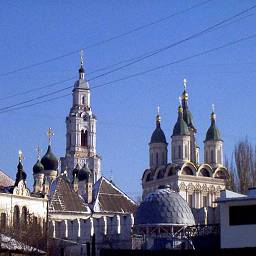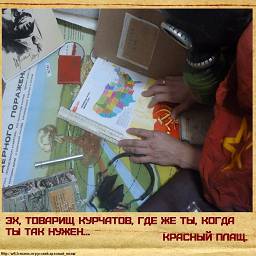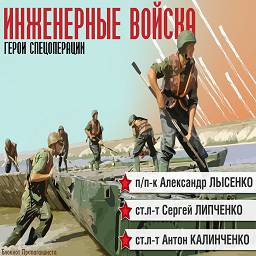Путь:
Quick Links
Language [ ENGLISH РУССКИЙ ]
Search
Продвинутый поиск
New Materials
- Ease of Implementation and Efficiency: The Advantages of DOBOT Collaborative Robots 2025-09-27
- Comprehending Viagra Soft: Advantages, Drawbacks, and Application 2025-01-24
- Affordable Instagram Growth with InstagFollowers.shop: Free Followers and Guaranteed Results 2024-12-18
- Buy instagram followers 2020-09-09
- FISCAL FEDERALISM THE CANADIAN EXPERIENCE 2020-03-22
- Analysis of differentiation of socio-economic development of the Russian regions 2020-03-22
- Economic development in the Russian regions: institutional and macroeconomic problems. 2020-03-22
- Russia's North: Economic Problems of Development 2020-03-22
- Problems of Fiscal Federalism in Russia 2020-03-22
- REGIONAL ASPECTS OF THE FEDERAL ECONOMIC POLICY 2020-03-22
- THE TELEVISIONS PROJECT 2020-03-22
- Journeys into History Through the Future 2020-03-22
- Artists Bring the Computer to Life 2020-03-22
- Culture in the Upcoming Millenium 2020-03-22
- What is a work of telecommunicative art 2020-03-22
Картинка недели
Union maniac
Evaluation section:
0
Union Punk is a wide circle of like-minded people who respect the era of the Soviet Union.
In many cities and countries of the former USSR there were fans who willingly share their memories with the same fans.
Proud of old times, constantly compare reality with the past.


Категории
SITUATION IN AGRO-INDUSTRIAL COMPLEX IN APRIL 97
Date of publication: 2018-01-31 13:49:00Дата модификации: 2018-01-31 13:49:00
Views: 1571
The article is timed to the date: 1997-04-01
Other articles related to: Date1997-04-01 Articles for: Year1997
Author: admin
Sowing works. This year, the level of winter damage of winter crops is comparable to the last year's one. The damaged area of winter crops makes up 9-12% on average, which is rather a low index. The worst state of crops is observed in Ural region (25-27%). At the same time, in North- Caucasian area, which is the largest region in terms of production of winter wheat, the damaged area does not exceed 5%. Taking into account a good state of soil, one may expect a rise of output of winter wheat in this region this year.
The current sowing campaign is notable thanks to a low rate of producers' sufficiency with fuel and lubricants and machinery ready for sowing.
Readiness of agricultural machinery and sufficiency with fuel and lubricants
( as of 1 April, 1997).
Source: Data of Goskomstat of RF
The survey conducted by IET in the first quarter of 1997 on around 200 agricultural producers in 27 regions of this country showed that 95- 99% of respondents estimate a level of stocks of fuel and lubricants, fertilizers, and spare parts as insufficient, and the worst situation is taking shape in terms of spare parts. On such a background, the level of sufficiency of agricultural enterprises in Stavropolsky krai with fuel and lubricants favorably differs from other regions- almost a half of the krai's respondents consider a level of stocks of fuel to be sufficient. Analogously, 1/4 of respondents in Krasnodarsky krai assume that they have a sufficient amount of mineral fertilizers at their disposal.
The larger enterprises are, the better they are prepared for sowing works. It is poultry farms whose problems with stocks of fuel and lubricants, fertilizers, and spare parts are minimal.
In spite of the situation with fuel and other resources, the rates of sowing of spring crops currently are superior to the dynamics of the last year's sowing campaign, especially in Rostovskaya oblast and Stavropolsky krai. Krasnodarsky krai's respective indices are worse, though it enjoys rather a significant advantage: according to the data we have, it is Krasnodarsky krai whose agricultural producers have got themselves ready for the sowing campaign in the most qualitative way ( application of fertilizers and insecticides) which should allow the region to avoid losses afterwards.
Changes in agrarian policy. The RF government adopted Resolutions on Federal procurements of food and agricultural products. These decisions show certain reverse process in the course of economic reform. It is for the first time since 1992 that intended volumes of Federal procurements have grown comparing to the preceding year. This fact proves the assumption that the current system of Federal procurements is not a mechanism of accumulating food to secure public needs, but mostly a scheme of issuance of privileged credits for certain procurement campaigns.
In spite of attempts to introduce distribution of the budgetary loans for procurements of agricultural products on the basis of auctions, the distribution happens beyond any open competition. In fact, larger volumes of the procurements mean larger volumes of privileged budgetary capital being spent without any control.
The necessity of a growth of procurements cannot be justified by any real public need. The experience of 1996 showed the surplus character of the Federal funds, given even permanent underfulfillment of intended volumes of the procurements. Thus, last year, it was broadly practiced that the Federal budget's debts to economic agents and budgetary organizations were paid off with sugar. In other words, Federal government was spending money to buy that sugar, then it experienced a lack of capital allocated for intended spending, and the government was paying its debts to the above-mentioned parties with the natural product which had not been required by Federal consumers. The absurd of the situation was intensified by an originally calculated unprofitable character of price ratio: recipients of the sugar substitute to Federal capital had to "monetarize" that at lower prices than ones existed at the moment of effecting of the payment. In the plans for 1997, however, Federal sugar procurements grew by almost 9%.
Dynamics of intended volumes of state procurements of food, thousands of tons.
Source: the respective Government Resolutions.
The other remaining negative feature of the agrarian policy is issuance of state guarantees to food importers. Thus, " for the purpose of maintenance of stable food supplies to the city of Moscow", Gasprom was granted a right to export 1.5 bln. cubic meters of natural gas, to use respective revenues ( USD 120-130 mln.) to import food for this country's capital. In addition to this, Moscow has received USD 200 mln. under favorable conditions. It is most likely that the money will be also spent on imports. Privileged hard- currency credits, Federal guarantees on transactions make purchases of food abroad be more profitable than ones performed on the domestic market. The above- mentioned hard- currency resources make up only about 3% of this country's overall food imports in 1996. These figures, however, are given without account of India's clearing supplies to Moscow, and other purchases of import food ( for example, sugar) performed under the government guarantees.
Therefore, one creates non- competitive conditions for domestic producers of agro- food products and importers of food on Moscow market. In such conditions, growth of food imports is inevitable, regardless of introduction of any import tariffs.
E. Serova, I. Khramova
FOREIGN TRADE
High growth rate of Russian export remained in January- February 1997 (8%), given a decrease of volumes of import by 6%. As a result, the trade balance for the first two month this year made up USD 4.7 bln. and exceeded the last year's level at 56%. The trend remains to extending trade relationships with countries outside the C.I.S.
Current problems in the field of regulating of foreign trade constrain growth of the C.I.S. states' mutual trade. Thus, in January- February 1997, volumes of Russian imports dropped by 21% and export ones- by 3% comparing to the same period of 1996. This happened for the first time after a significant growth observed over the preceding year. On the whole, volumes of export made up USD 2.8 bln., and ones of import- USD 2.5 bln. for the first two months of 1997. As a result, the positive balance has taken shape, while Russia had been gaining a passive balance of trade with the C. I. S. states over almost the whole preceding year. Nevertheless, a significant rise of volumes of export and import accounted for more than 20% in February comparing to January 1997 allows to forecast that last year's trends in Russia's trade with the C.I.S. states should remain in 1997.
In spite of the fact that problems of the integration with Belorussia remain a priority for Russia, in late March, in Moscow, heads of the C.I.S. states approved the Concept of Economic Integration Development of the Commonwealth as a whole. It was noted that there are certain economic prerequisites for intensification of integration, such as a significant rise of Russia goods turnover with certain neighboring countries. Thus, for example, as per Moldova, in 1996, the goods turnover between the two countries grew by 50% by only bilateral agreements, while by the C.I.S. states on the whole increase of volumes of trade operations made up 26%. At the same time, implementation of integration plans persistently requires that the Commonwealth's states should finally cancel excises imposed on imports and exports of goods, along with VAT.
As per the sphere of foreign trade legislation, starting from 15 May, 1997, the RF government should implement its plans of introducing tariff restrictions on sugar imports from the C.I.S. states. The government introduced the customs duty of 25% of sugar's customs value, which is valid for all other countries.
S. Prikhodko, N. Volovik, N. Leonova
Evaluation of the document:
0
Article description: Sowing works. This year, the level of winter damage of winter crops is comparable to the last year's one. The damaged area of winter crops makes up 9-12% on average, which is rather a low index.
Albums:
Other articles of the section: Union maniac
Previous EVOLUTION OF THE BUDGETARY CRISIS IN 1996-1997NextDr.E.Gaidar-Limits of the Socialist Growth
Similar articles:
Новые альбомы:
Nested sections




_cоветский_совьет_панк_моддинг.jpg)
_известные_бренды_на_советский_манер.jpg)

_косплей_совьет_панк.jpg)

_стенгазета_союз-маньяка.jpg)
_юмор_в_стиле_союз-маньяк.jpg)

